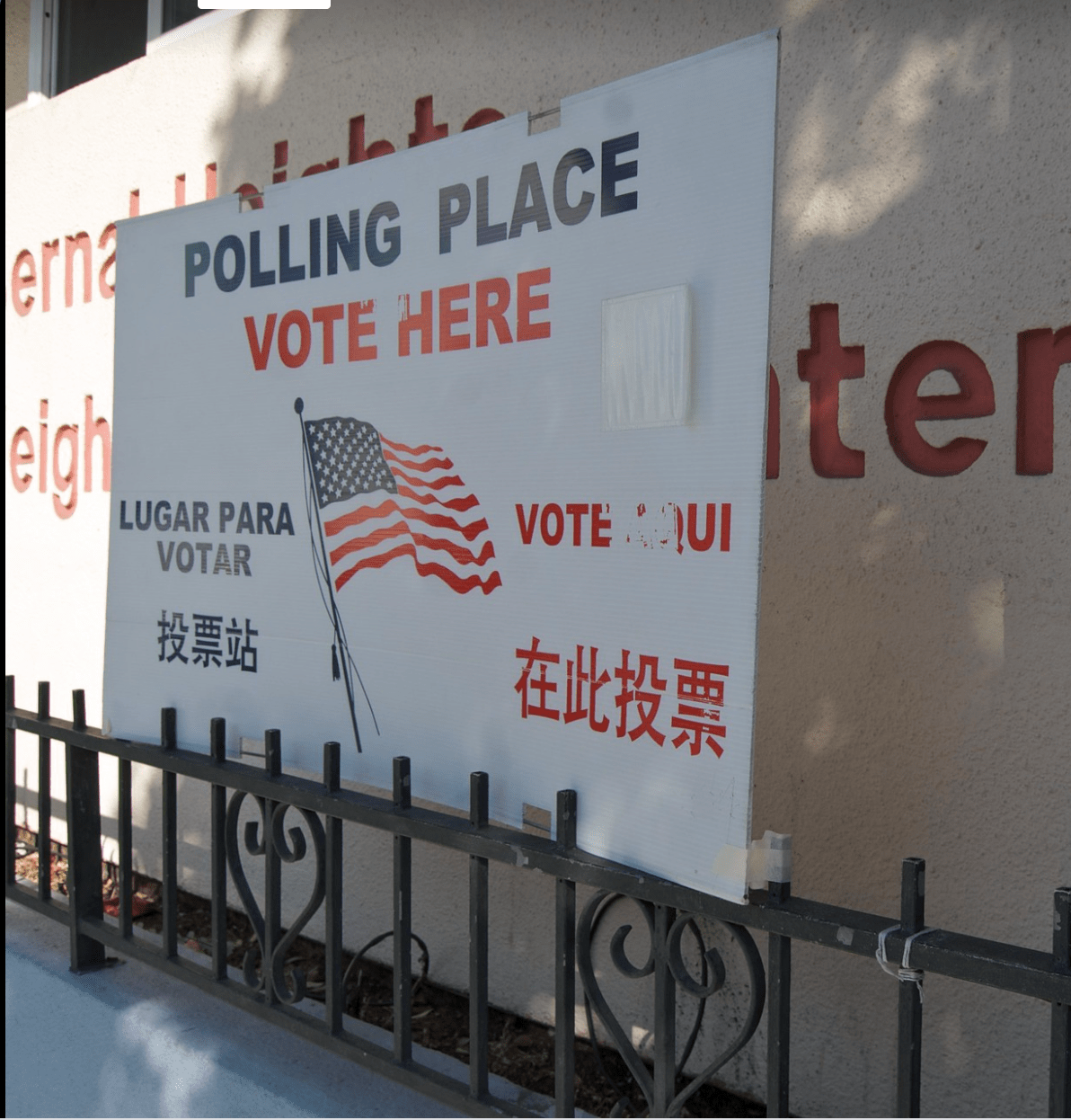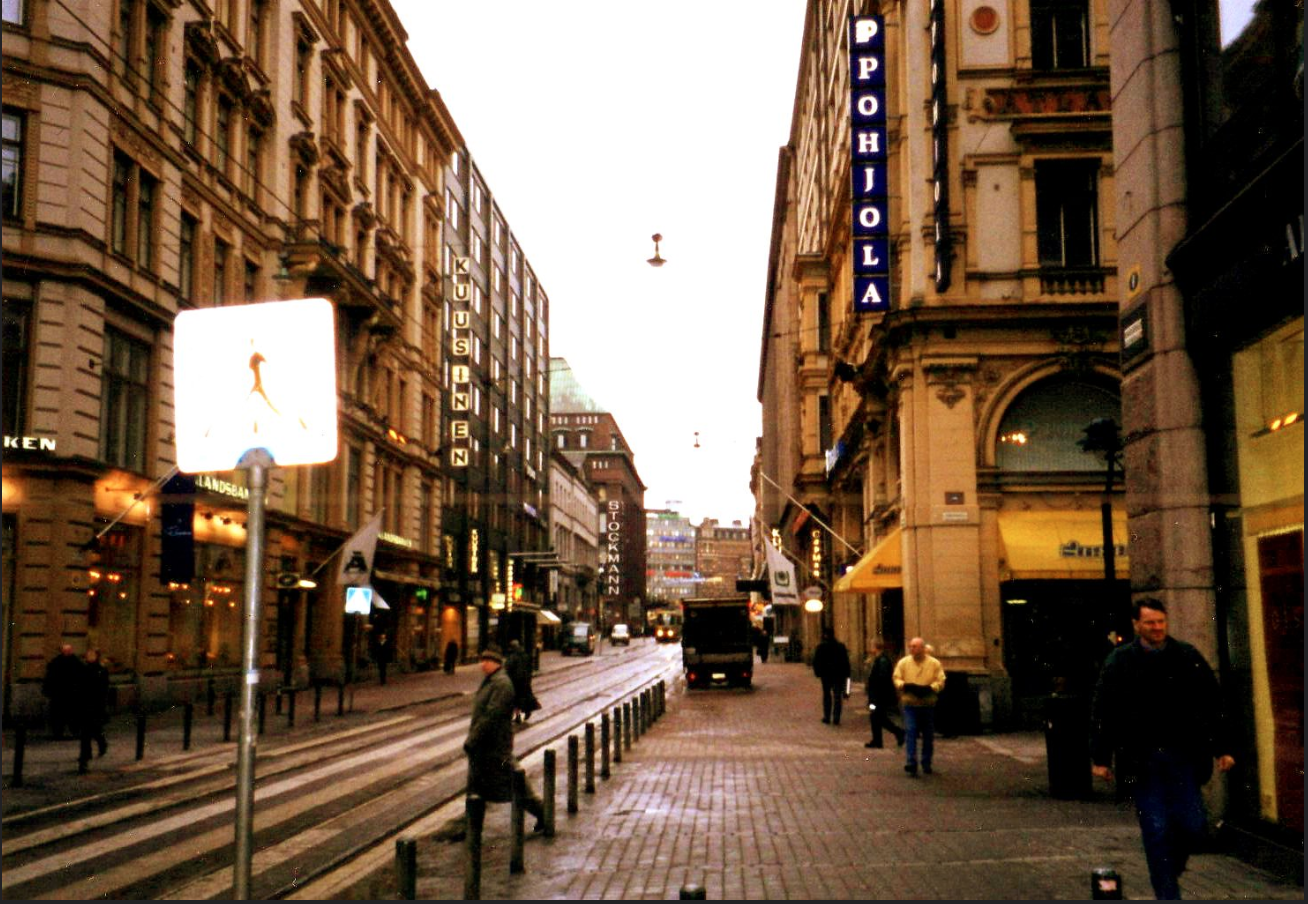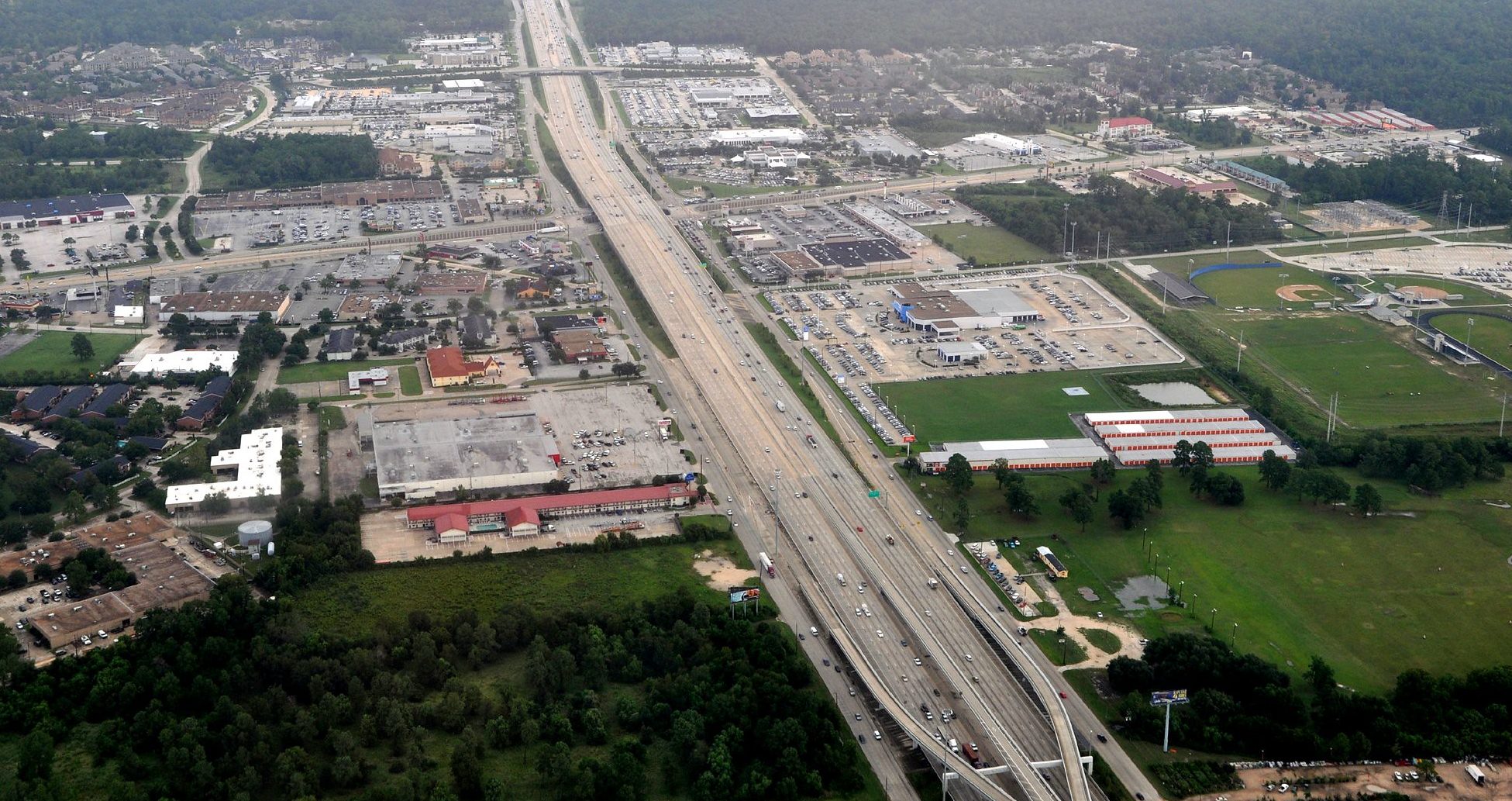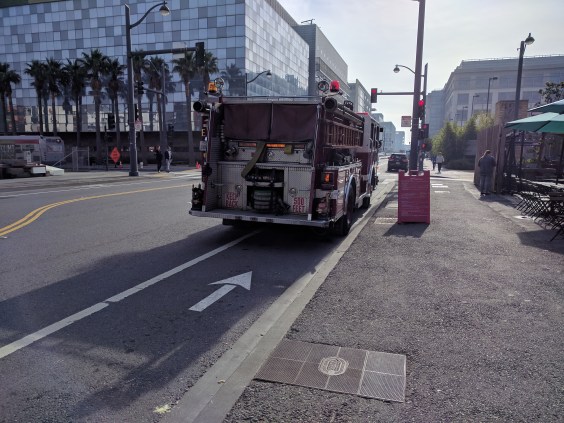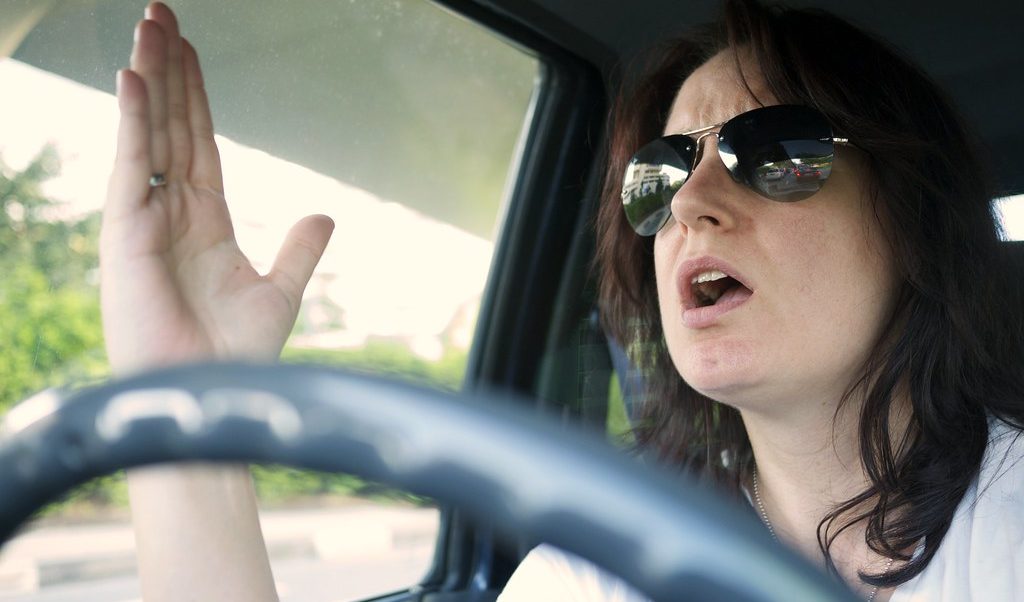How Cities Are Keeping Voting Queues Safe from COVID-19 and Cars
1:14 PM EST on November 3, 2020
To make voting easier during the coronavirus pandemic, some cities are using space typically allocated to drivers to create larger polling places (and safer lines) for people — a reminder that casting ballots should be a priority in every election day in every city, advocates said.
Even in the first hours of election day, a combination of social distancing requirements and anticipated record-breaking voter turnout were already stretching lines to their limit; in some cities, voters have already waiting for hours in outdoor spaces that weren't remotely designed with human bodies in mind.
The elderly couple with the walker were slowly heading to the back of the voting line when several ppl in front of me offered them a spot... trying to keep them from standing in the cold for too long. Let's please remember to be kind to each other today ❤️ @abc3340 pic.twitter.com/72SV7OsHtb
— Byron Khalil (@ByronKhalilTV) November 3, 2020
People waiting outside in the snow at 7:00am in Bethel Alaska to vote. #2020Election pic.twitter.com/ib86XAejy4
— RBMEllis (@RBMEllis) November 3, 2020
"All over the country, we’re seeing long lines of voters spilling into the streets — and especially in places without good sidewalk infrastructure, or cities that didn’t think ahead to protect long lines of voters from the weather with basic coverings, it can become a real hazard," said Mike Lydon, co-author of the Streets for Voting guide, which his firm, Street Plans, recently released to city officials. "I was just looking at photos of Atlanta where voters standing in intersections. Those kinds of hazards are unacceptable, and they can become their own deterrent to voting."
But not every city is putting its voters in harm's way. Some communities thought ahead and put guides like Lydon's into practice — and some started long before election day.
In Pittsburgh, outdoor early voting stations on car-free streets were particularly popular among BIPOC voters who were wary of their mail-in votes being counted in time.
Voting rights activists – as well as Democrats – are pinning their hopes for a big turnout in this year’s election on mail-in voting. But some voters in Black communities don't plan to just sit back and mail it in. https://t.co/8yraHbvoCm
— 90.5 WESA (@905wesa) October 28, 2020
San Francisco was also quick to offer early voting in outdoor settings, including bike-up ballot drop-off stations like this one (don't worry, we're told there's a generous sidewalk on the other side of that booth), and outdoor polling locations outfitted with generous canopies to keep voters warm and dry.
Whether you return your ballot at the outdoor Voting Center or a ballot drop-off station or vote in person at your local polling place, remember to wear a mask and practice physical distancing. Find out your options for voting at https://t.co/uPrkR5kFxC or calling (415) 554-4375. pic.twitter.com/0yXeBb0kDq
— San Francisco Department of Emergency Management (@SF_emergency) November 3, 2020
Early voting in San Francisco pic.twitter.com/ceuAyh8Hyn
— Helmut the Schmidt (@sfhelmut) October 28, 2020
Portsmouth, N.H. spun its outdoor voting program as an alternative to those who don't, won't, or can't wear a mask in an indoor facility, and set up generous space for waiting voters to safely social distance in a large parking lot.
Here's one New Hampshire parking lot polling place, including the best use for a giant pick up we've seen in a while: as a massive paperweight for a protective canopy.
When the outdoor alternative voting location for maskless voters starts to blow away in the snow squall, you get creative... pic.twitter.com/mQ4h64rFUB
— Sara Persechino (@SaraPersechino) November 3, 2020
Southborough, Mass. also went the extra mile to draw voters to its outdoor polling locations by letting them double as COVID-19 screening centers; yes, you can drop off your ballot and your hermetically sealed vial of nose germs in one handy place!
In @17common -Southborough- COVID-19 screening and outdoor voting booths on election day #Election2020 Read the details @metrowestdaily @Gannett pic.twitter.com/5PmvrfLTad
— Art Illman (@illmanMWphoto) November 3, 2020
Open-air stadiums are proving to be popular for well-ventilated voting, including this one in Harris County, Texas. (Yes, we're aware that the Houston area is a little more famous these days for their drive-thru voting program and the ensuing legal debacle, but there are plenty of polling places in and around the Space City that don't require access to a gas-guzzling automobile.) It'd be even better if they closed down the empty parking lots outside these monster arenas and put them to a more Democratic use, but at least you can avoid queueing around one of Houston's notoriously pedestrian-unfriendly blocks at a more traditional voting location if you choose to vote at Rice University.
Haven’t seen Rice stadium this crowded since the 2004 St. John’s vs. Kinkaid game! #VoteEarly pic.twitter.com/Dm1tkJZrL6
— Evan (@evan7257) October 16, 2020
In Boston, Red Sox fans who prefer an outdoor voting option can even live out their Fenway fantasies...and of course, they were very Boston about it (see the wicked awesome video in second tweet below).
Voted at Fenway this weekend. I 💗 living in Boston.10/10 reccomend. This women captures the joy exactly. https://t.co/rQS3wmLHcC pic.twitter.com/5Bae5ijP2K
— olivia christmann (@ski_with_liv) October 20, 2020
Even in cities that haven't opened their streets and parking lots to people, private citizens are doing their best to make voting queues as safe, comfortable, and even joyous as they can — something experts stress is key to making participating in our democracy an exciting proposition, even in states that seem to do their darndest to suppress their citizen's rights to the polls.
"It’s so important to think about how we can use public space to make the experience of waiting to get into a polling location joyous and inclusive," Lydon emphasizes ."And particularly in dense urban spaces, that often means we need to repurpose some car space."
Activists in Springfield, Mo. activated the area outside a Missouri State University voting place with a whimsical selfie station (though we wish they'd gotten clearance to put that thing in a parking spot....and maybe left a few Lysol wipes lying around.)
The “swing vote” outside the MSU central polling station pic.twitter.com/iYQE2KZhye
— Nathan Papes (@NPapes) November 3, 2020
We'd love to see the streets filled with more #PlayForTheVote musicians serenading Americans as they wait on those long lines — especially in those cities that don't provide a car-free patch of grass for performers to set up their instruments.
This is Cameryn Baum, a recent ASU graduate who’s playing the cello outside of this Gilbert polling station to provide a more positive voting experience. She said she’s participating in the nationwide Play for the Vote campaign by playing her music here. pic.twitter.com/qMvlBsomVU
— Kelly Donohue (@kellydonohue15) November 3, 2020
And some good neighbors supported their fellow voters in simpler ways: by giving them umbrellas when their government left them standing in the rain.
Of course, making public space around polling stations safer and more comfortable for outdoor voting isn't a silver bullet — and until states stop suppressing the vote by closing down polling stations and other (often racist) atrocities, those lines will stay unacceptably long. But it's heartening to know that at least some American cities — and average Americans – are out there trying their best to keep Democracy moving.
Kea Wilson has more than a dozen years experience as a writer telling emotional, urgent and actionable stories that motivate average Americans to get involved in making their cities better places. She is also a novelist, cyclist, and affordable housing advocate. She previously worked at Strong Towns, and currently lives in St. Louis, MO. Kea can be reached at kea@streetsblog.org or on Twitter @streetsblogkea. Please reach out to her with tips and submissions.
Read More:
Stay in touch
Sign up for our free newsletter
More from Streetsblog USA
Tuesday’s Headlines Pick the Low-Hanging Fruit
Greg Shill argues that if a transformative road redesign isn't possible, it's time to talk about second-best strategies.
How to Fight a Texas-Sized Freeway Battle
A new book explores how Texas advocates are fighting back against destructive highway expansions. But what happened to those projects since it was sent to the printer?
S.F. Fire Apologies for Tweeting About Imaginary Bike Rule
There is no rule in California that says cyclists have to ride single file — but the San Francisco Fire Department tweeted about it anyway.
You Wouldn’t Like Monday’s Headlines When They’re Angry
Which state has the worst road rage? Consumer Affairs magazine looked at a variety of factors to come up with an answer.
When it Comes to Federal Infrastructure Grants, Size Does Matter
Cities and municipalities with larger budgets and staff are more likely to win competitive federal infrastructure grants, the Urban Institute has found.
